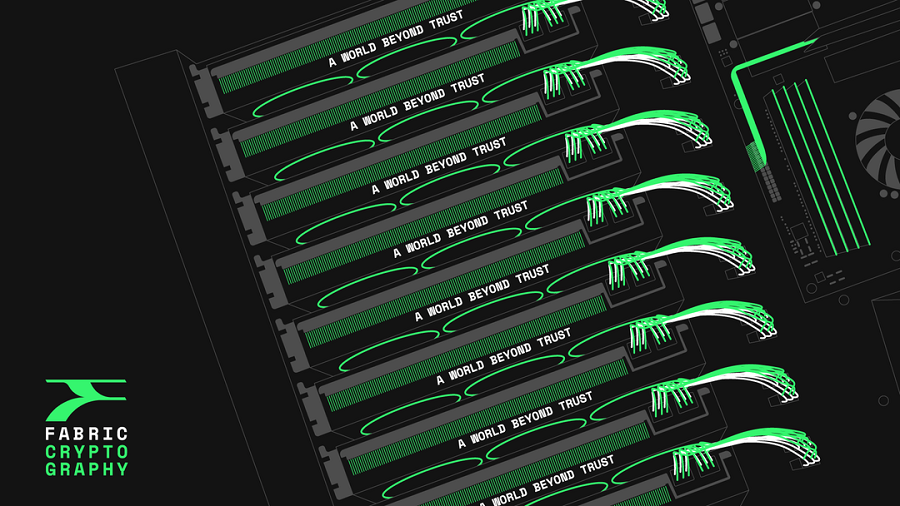 INFRA
INFRA
 INFRA
INFRA
 INFRA
INFRA
Startup Fabric Cryptography Inc., which sells chips optimized to run encryption algorithms, has raised $33 million in early-stage funding to support its product development efforts.
Blockchain Capital and 1kx co-led the Series A investment. Fabric detailed in its announcement of the raise today that cryptocurrency companies Offchain Labs, Polygon and Matter Labs contributed as well. The chipmaker’s total outside funding now stands at $39 million.
Fabric’s flagship product is the Verifiable Processing Unit, or VPU, a chip designed specifically to run cryptography algorithms. Such algorithms consume a significant amount of processing power when companies use them to regularly encrypt and decrypt large datasets. Fabric says that its VPU can run cryptography software more efficiently than traditional processors and thereby lower operating costs.
“There exists a whole world of advanced cryptographic algorithms that go beyond protecting our data, and can actually begin to guarantee trust, if we can run them efficiently,” said Fabric co-founder and Chief Executive Officer Michael Gao.
The language in which processors express calculations is known as the instruction set. It’s a collection of simple computing operations, or instructions, that a chip can mix and match to complete tasks specified by applications. Some of those computing operations perform arithmetic calculations, while others carry out actions such as moving data between different sections of the host device’s memory.
Fabric has equipped its VPU with an instruction set designed specifically for cryptography workloads. According to the company, its chip includes instructions optimized for the mathematical operations that are most commonly used by encryption algorithms to scramble and unscramble data. The VPU also includes features that can speed up hashing, a method of managing sensitive data that is used by many cybersecurity applications.
There are already numerous cryptography-optimized chips on the market. However, many of those chips are built to run a specific set of cryptography algorithms, which limits their usefulness. Fabric says that its custom instruction set makes the VPU more adaptable: customers can reprogram the chip to run new cryptography algorithms when their requirements change.
Fabric sells its processor in multiple form factors. It offers a cryptography module called the FC 1000 that includes a single VPU and an accelerator card with three chips. For customers with more demanding applications, Fabric provides a system called the Byte Smasher that can be equipped with up to 21 VPUs.
The first use case that the company is targeting with its silicon is running ZKP, or zero-knowledge proof, algorithms. Such algorithms are used by certain blockchain platforms to verify that user transactions are not fraudulent without making data about those transactions broadly accessible. Fabric disclosed on occasion of today’s funding announcement that it has received preorders worth tens of millions of dollars from customers looking to use its chips for ZKP workloads.
The company will use the funding to develop a new, more capable version of the VPU. It will hire more developers in conjunction to enhance the software suite that ships with the chip. Fabric offers a compiler and several related tools that eases the task of deploying applications on VPUs.
Support our mission to keep content open and free by engaging with theCUBE community. Join theCUBE’s Alumni Trust Network, where technology leaders connect, share intelligence and create opportunities.
Founded by tech visionaries John Furrier and Dave Vellante, SiliconANGLE Media has built a dynamic ecosystem of industry-leading digital media brands that reach 15+ million elite tech professionals. Our new proprietary theCUBE AI Video Cloud is breaking ground in audience interaction, leveraging theCUBEai.com neural network to help technology companies make data-driven decisions and stay at the forefront of industry conversations.